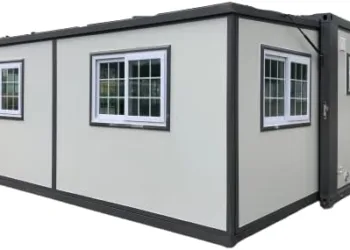Are you self-employed and wondering if it’s possible to buy a home?
While it may present some challenges, the truth is that it is definitely possible to achieve homeownership even if you don’t have a traditional salary and employment history.
This blog post will serve as a comprehensive guide, walking you through the process of purchasing a home when you are self-employed.
By following our step-by-step instructions, we believe that this can be an easy and straightforward experience for you!
From determining your budget and financing options to preparing your financial documents and closing on a house, we’ve got you covered.
With the right resources and preparation, you can successfully purchase a home and make your dream of homeownership a reality.
Determine your budget and financing options

- Calculate your down payment, debt-to-income ratio monthly income, monthly mortgage payments, and expenses.
Determine your budget and financing options: The first step in the home-buying process is to determine how much you can afford to spend on a home.
Take a close look at your monthly income and expenses to get a clear picture of what you can afford.
You may want to consider working with a mortgage broker, who can help you find the best financing options based on your unique situation.
For self-employed individuals, there are several options to consider, such as self-employed mortgages, bank statement loans, and small business loans.
Purchasing a home can be a daunting task, especially if you are self-employed.
Without a traditional salary and employment history, it can be difficult to secure financing and navigate the home-buying process.
However, with a little extra preparation and the right resources, you can successfully buy a house even if you are self-employed.
Prepare your financial documents
Next, it’s time to prepare your financial documents.
As a self-employed individual, you’ll need to provide personal tax returns, bank statements, and other financial documents to demonstrate your income and financial stability.
This may involve organizing and presenting your documents in a way that is easy for lenders to understand.
If you’re feeling overwhelmed, you may want to consider hiring a professional to help you prepare your documents.
Calculate your down payment

Generally, the down payment mortgage loan for self-employed individuals is higher than that of a regular FHA loan, which usually amounts to 3.5%.
The amount you will need to pay as a down payment for self-employment depends on the loan program and lender, but it’s typically 10-20% of the home price.
You may also be able to use other funds for your down payment and closing costs, such as gifts from family or friends.
Credit Score

Usually, lenders require a higher credit score above 660 for self-employed borrowers and a larger down payment.
So, it’s important to check your credit score and make sure it is in good shape before you start the home-buying process.
You may want to spend some time building up your credit by paying off any outstanding debts and monthly payments on time to improve your payment history.
It’s wise to keep your credit utilization rate below 30% in order to maintain a good credit score and credit history.
Related Reading:
How do I choose the right property management company?
Hire a Mortgage Broker
Hiring a mortgage broker can be a valuable resource for anyone looking to purchase a home, but it can be especially helpful for self-employed individuals.
A mortgage broker is a professional who specializes in helping clients secure financing for their home purchases.
Here are just a few of the advantages of hiring a mortgage broker:
- Expertise: Mortgage brokers have extensive knowledge of the mortgage industry and can help you understand the various financing options available to you.
They can also help you determine how much you can afford to borrow and what kind of mortgage would be best for your situation.
2. Time-saving: Applying for a mortgage can be a time-consuming process, especially if you are self-employed.
A mortgage broker can handle much of the legwork for you, freeing up your time to focus on other aspects of the home-buying process.
3. Access to multiple lenders: Mortgage brokers have relationships with a wide range of lenders, including banks, credit unions, and other financial institutions.
This can be especially helpful for self-employed individuals, who may have a harder time securing financing on their own.
4. Personalized service: A mortgage company can work with you one-on-one to understand your unique financial situation and help you find the best mortgage option for your needs.
Overall, hiring a mortgage broker can be a valuable resource for self-employed individuals looking to purchase a home.
With their expertise, time-saving capabilities, access to a wider range of lenders, and personalized service, a mortgage broker can help you secure the financing you need to make your home-buying dreams a reality.
Shop around for the best loan program
Shop around for the best loan program.
Make sure to compare interest rates, fees, and other terms before making a decision.
You may want to consider getting pre-approved for a loan so you can have an estimate of what your monthly mortgage payment will be what you can afford before shopping for a home.
Once you find the right loan program, make sure to get everything in writing before signing any documents.
Related Reading:
Higher mortgage rates are not stalling home prices — here’s why
Find a real estate agent

Once you’ve got your finances in order, it’s time to start searching for homes. Working with a real estate agent who has experience helping self-employed individuals can be especially helpful.
Your agent can help you determine your needs and preferences and then search for homes that fit your budget and requirements.
When you find a home you like, your agent can help you make an offer and negotiate the terms of the sale.
Your agent will also be able to guide you through the closing process and ensure that everything is handled properly.
By working with a real estate agent, you can save time and money while still finding the perfect home for yourself or your family.
Be sure to do your research and choose an experienced agent who has worked with self-employed individuals in the past.
Consider the type of home you want
Determine whether you want a single-family home, a townhouse, a condominium, or something else. Consider factors such as location, size, style, and amenities.
Researching the neighborhood and surrounding area can also be important, as you’ll want to consider the crime rate, schools, and other amenities in the area.
Search for homes and make an offer

Once you have an agent, it’s time to start searching for homes.
Your agent will be able to help guide you through the entire process, from finding a home that fits your needs and budget to making an offer and closing on the sale.
Be sure to take your time and do your research so that you can get the best deal and find a home that you love.
Once you have made an offer and it has been accepted, your real estate agent can help you through the closing process.
Your agent will be able to explain any paperwork that needs to be signed, manage communication between all parties involved in the transaction, and ensure that everything is handled properly.
Get a home inspection

Before closing on the sale of any home, it’s important to get a home inspection.
A home inspector will look for structural problems and defects that may not be visible to the unaided eye.
This can help you avoid buying a house with unexpected repair costs down the road.
Your real estate agent can help you find a qualified home inspector and answer any questions you may have about the process.
Purchase Homeowners Insurance

Once you’ve purchased your home, don’t forget to purchase homeowners insurance to protect your investment.
Shop around and compare quotes from different insurance companies to find the best coverage for your needs.
It’s also important to understand the ongoing expenses of homeownership, such as property taxes, maintenance and repairs, and insurance.
Make a budget and plan for these costs to ensure that you can afford to maintain your home over the long term.
Buying a home as a self-employed individual may require a little extra effort, but with the right resources and preparation, it is possible.
With careful planning and a thorough understanding of the process, you can successfully purchase a home and make your dream of homeownership a reality.
Related Reading:
Visa holder’s step-by-step guide on purchasing property in the United States of America
Consider the Long-term Costs of Homeownership
- Understand the ongoing expenses of homeownership, such as property taxes, maintenance and repairs, and insurance
- Make a budget in addition to monthly housing payments and plan for these costs to ensure that you can afford to maintain your home over the long term.
This will help you avoid getting into financial difficulty and ensure that your home is an asset rather than a liability.
Finally, consider the long-term costs of homeownership, such as potential capital gains taxes when you eventually sell the property.
By understanding all of the costs associated with owning a home, you can make an informed decision and find a home that is right for you.
Finalize your purchase

The final step in the home-buying process is getting the mortgage approved and cleared to close on the house. Work with your lender to secure financing and finalize the purchase.
Attend the closing and sign the necessary documents to complete the process. After the closing is finished and all documents are signed, you will officially own your home.
Congratulations! You’re a homeowner.
Enjoy this exciting new chapter of life that comes with owning your own home.
Make sure to keep up with maintenance and repairs so your investment can continue to appreciate in value. Best of luck on your journey of homeownership!
The process of buying a home as a self-employed individual can be intimidating, but with the right resources and preparation, it is manageable.
Working with professionals such as real estate agents and mortgage lenders who have experience helping self-employed individuals can make the process much smoother.
They can help you understand the paperwork and financing options to make sure you find the perfect home that fits your needs.
By determining your budget and financing options, preparing your financial documents, finding a real estate agent, searching for and making an offer on a home, securing a mortgage and closing on the house, and considering the long-term costs of homeownership, you can successfully navigate the home buying process and achieve your goal of homeownership.
With careful planning and a thorough understanding of the process, you can make your dream of homeownership a reality.














